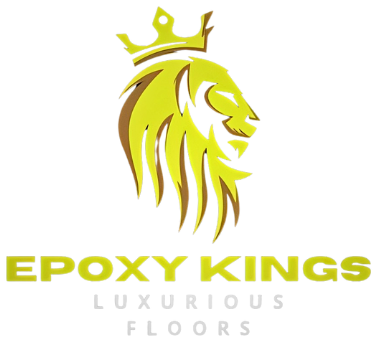Contact Us
Call us
Send us a Message
Frequently Asked Questions
Is Epoxy Flooring Slippery?
Epoxy flooring isn’t as slippery as it looks. Adding a skid-resistant additive to the topcoat can make the floor very safe, even when wet. Without a nonslip additive, epoxy flooring can become very slippery, especially with oil spills. At Epoxy Kings, we highly recommend the topcoat to avoid accidents and ensure maximum safety for your epoxy floors in Cape Town.
What Causes Damage to Epoxy Flooring?
Understanding Epoxy Floor Damage:
Improper application is a common misconception among facility managers when epoxy floors show signs of damage. However, the reality is more complex. Epoxy is sensitive to various factors both during and after application. Elements like weather conditions and plant operations can impact epoxy negatively. Here are key factors affecting the quality and durability of epoxy floors:
- Temperature Extremes: Extreme temperatures or fluctuations can cause peeling or uneven coatings. Epoxy needs a specific temperature range (20 to 30 degrees Celsius) to set properly.
- Humidity and Moisture: Humidity and moisture cause bubbles, blisters, and peeling. A completely dry environment is essential for durability.
- UV Exposure: UV radiation leads to discoloration and bubbles. Avoid using epoxy in areas with prolonged sunlight exposure.
- Surface Texture: A too-smooth or too-rough base surface can prevent proper adhesion, causing peeling or bubbles.
- Contaminants on the Base Floor: Oil or other contaminants can obstruct adhesion, leading to peeling.
- Application Speed: Applying epoxy too quickly or too slowly can cause blisters, pinholes, or low-quality finishes.
- Material Handling Equipment: Forklifts and heavy equipment can scratch and damage epoxy floors, progressing to significant patches over time.
Maintaining the integrity of epoxy flooring requires careful consideration and control of these factors.
What Is the Average Cost of Installing an Epoxy Floor?
Cost pricing for epoxy flooring in Cape Town varies based on several factors, but it averages between R350 and R700 per square meter. Key factors include:
- Thickness of the layer required.
- Professionalism and experience of the installer.
- Installation methods used.
- Quality of materials.
- Size of the area.
- Amount of preparation needed.
Here at Epoxy Kings, we focus on durability and quality. We use an international procedure manual for all installations, ensuring mid-range pricing with high-quality results. The state of the existing floor also impacts cost due to varying preparation needs.
Average Cost Price Guide (Estimation Use Only):
- Entry-Level 2mm Water-Based Epoxy: R165 – R350 per square meter.
- 3mm Chemical-Resistant Epoxy: R350 – R1000 per square meter.
- Decorative Flake Epoxy: R700 – R1200 per square meter.
- Metallic Epoxy: R700 – R1500 per square meter.
- 3D Epoxy Flooring: R800 – R2000 per square meter.
How Do I Schedule an Epoxy Floor Installation in Cape Town?
Contact us to schedule your epoxy floor installation at your convenience. We offer flexible scheduling to meet your needs. Reach out to us via phone, email, or our online contact form for a prompt response and expert guidance on the best epoxy solutions for your space.
What Maintenance Is Required for Epoxy Floors?
Epoxy floors are low maintenance but require regular cleaning to maintain their shine and durability. For specific maintenance tips and to address any concerns, contact us directly. Our experts will provide you with tailored advice to keep your epoxy floors looking brand new.
Can I Get a Free Quote for Epoxy Flooring?
Yes, we offer free quotes for all epoxy flooring projects in and around Cape Town. Contact us today to get a detailed estimate based on your specific requirements. Our team is ready to assist you with transparent pricing and expert recommendations.
